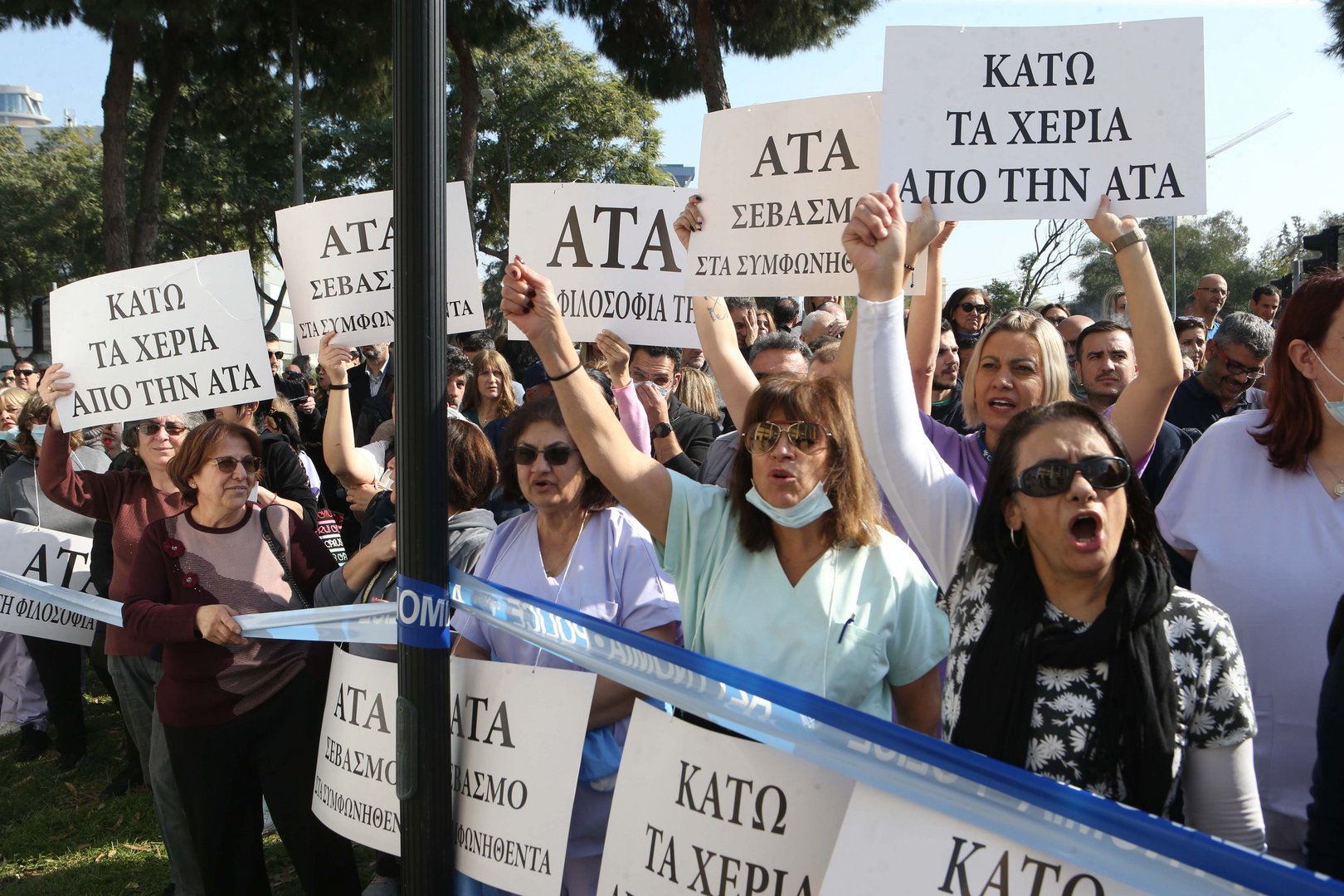The CoLA dispute, thanks to which there will be a national three-hour work stoppage on Thursday affecting airports, hospitals, schools, public transport and inconveniencing tens of thousands of people, does not look like it will be resolved any time soon. How could there be a compromise when one side wants the full restoration of CoLA (up from 67 per cent of its value to 100 per cent) and the other side considers this out of the question.
The other side is not just the employers but also the government, which has been told by the IMF to scrap CoLA as one of the ways of keeping the public payroll under control. Giving 100 per cent of its value to public employees every year would not be economically prudent, particularly for a government that likes to boast about its commitment to fiscal discipline. In short, the unions are now faced by a government-employers’ alliance and do not seem to have the support of their members.
In fact, the dispute is more about the egos of the union bosses who had promised their members the full restoration of CoLA but are now unable to deliver, rather than a mass mobilisation of the workers. Union bosses feel cheated because President Christodoulides before his election had promised some of them full restoration of CoLA and is refusing to honour his promise. He raised it from 50 per cent to 67 per cent of its value soon after his election, but is not prepared to up it to 100 per cent as the union bosses are demanding.
Rather than make this clear to the union bosses, Labour Minister Yiannis Panayiotou has been at pains to appease them after it became clear they would not back down. The proposal he made on Monday evening took everyone by surprise as it had never been discussed before. He had proposed passing legislation that would entitle all workers to payment of CoLA. Currently only about 30 per cent of private sector workers are paid CoLA and there is no way employers would agree to it becoming a legal obligation. Panayiotou argued that this was necessary to foster social cohesion, but also wanted the percentage paid to be higher for the lower wages.
Unions do not accept this line, arguing that CoLA was not a measure for social policy but for preserving the purchasing power of wages. Of course, they have every right to say this, considering neither the government nor the political parties have dared to challenge this claim and to point out what anyone with a basic understanding of economics knows – indexing of wages fuels inflation and in the end reduces the purchasing power of wages even more. The overwhelming majority of economists are agreed on this, but it appears Cyprus’ union bosses believe they have greater expertise.
It is very difficult to say what will happen now. There is no obvious formula that would allow the union bosses to save face and employers’ organisations will not back down. The government, meanwhile, is being totally irresponsible in attempting to win over the unions by enshrining CoLA in law and obliging everyone to pay it. The two sides are too far apart, and the government must abandon any thought of introducing new CoLA measures as a compromise as this would create more market distortions.
The dispute must be left to run its course – until workers refuse to follow their union bosses.






Click here to change your cookie preferences